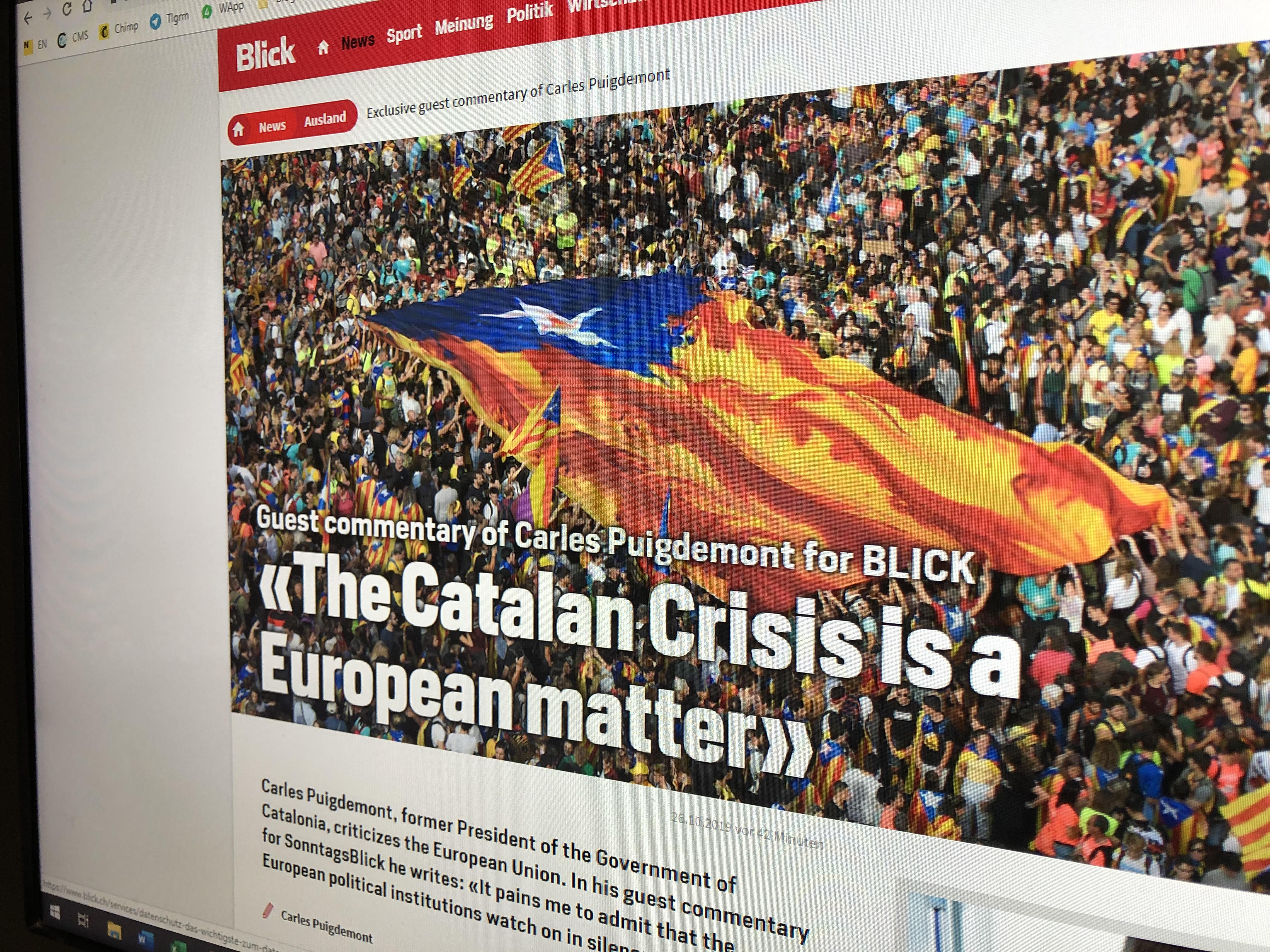Carles Puigdemont insists that the conflict in Catalonia is "a European matter", because what is at stake are the values on which the European Union has been built. This is what the exiled Catalan president asserts in an analysis published by the Swiss newspaper Blick, the top-selling popular daily, owned by the country's largest media group, Ringier. Puigdemont asks the EU to intervene because Spain suffers from a "structural inability" to reach a compromise. The legacy of the Franco regime, the incapacity to listen and negotiate, the politicization of Spanish justice, the use of repression as a standard response are the arguments made (in English and also in German) by the president, the man who led Catalonia into the 2017 referendum.
"It pains me to admit that the European political institutions watch on in silence. The EU allows the police of one of its Member States to use violence against its citizens. The European club of states allows Spain to set the agenda, while turning a blind eye to the shameful fact that three members of the European Parliament, who received more than two million votes, are prevented from taking up their seat. The idea that voting is the essential foundation of democracy or that the people’s decision is sacred will be irreparably damaged if we continue to be prevented from assuming our mandate," says the president in exile.
Puigdemont warns that in this way "the Union ceases to be an attractive project in the eyes of societies such as Switzerland, where the will of the people is the foundation of the entire system."
"Hardships and suffering"
The exiled Catalan leader explains that Spain has used its "sacred unity" as the excuse to justify "severe repression in response to the petition of Catalan society", recounting how the country "disregarded politics and assigned the responsibility for 'resolving' this conflict to the courts." Puigdemont quotes EU survey results showing that Spain's legal system is one of the least trusted by its citizens in Europe.
He asks rhetorically: "With an incapable political system and a heavily politicized judiciary, what could possibly go wrong?" The "authoritarian drift" that has now occurred, explains the former president, means that Catalans have "a long road ahead", filled with "hardships and suffering". He also points out, however, that before embarking on the path to independence "all possible routes forward" within Spain had been exhausted. "What option would you be left with if they closed the door on all channels of dialogue?"
"We are defending democracy because it is the best way to defend our dignity," he concludes.

